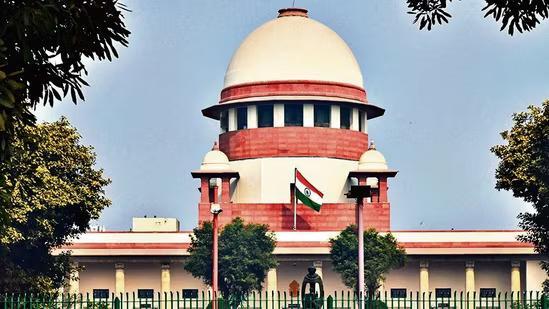
No Action Against Owners of 10 & 15-yr-old Diesel & Petrol Vehicles for 4 Weeks: SC
In a significant development, the Supreme Court has passed an order, stating that no “coercive” action will be taken against the owners of over 10-year-old diesel and 15-year-old petrol vehicles in Delhi for four weeks. This decision was made in response to an application filed by the Delhi government, which challenged the ban on these vehicles as a pollution control measure in the capital.
The ban on these vehicles was imposed by the Delhi government in a bid to reduce air pollution in the city. The government had announced that vehicles older than 10 years would not be allowed to operate in Delhi from January 1, 2020, and those older than 15 years for petrol vehicles would not be allowed to operate from April 1, 2020.
However, the Delhi government’s decision was challenged in the Supreme Court by the owners of these vehicles, who argued that the ban was arbitrary and unreasonable. The owners claimed that they had not been given a fair chance to comply with the new emission norms and that the ban would cause them significant financial losses.
In response to the application filed by the Delhi government, the Supreme Court has stayed the ban on these vehicles for four weeks. During this period, the government will not be able to take any coercive action against the owners of these vehicles.
The order was passed by a bench comprising Justices Arun Mishra and Deepak Gupta. The bench directed the Delhi government to allow the owners of these vehicles to operate them without any restrictions for four weeks. The bench also directed the government to consider the application filed by the owners and to take a decision on the matter after hearing both sides.
The Delhi government has been directed to file a reply to the application filed by the owners of these vehicles within four weeks. The government has also been directed to take the views of the owners and the Delhi Pollution Control Committee (DPCC) before taking any decision on the matter.
The Supreme Court’s order is a significant relief for the owners of these vehicles, who had been facing the risk of their vehicles being seized or confiscated if they were found operating on Delhi’s roads. The order has also given the Delhi government four weeks to reconsider its decision on the ban and to come up with a more reasonable solution to the problem of air pollution in the city.
The ban on old vehicles was imposed by the Delhi government as part of its efforts to reduce air pollution in the city. Air pollution has been a major problem in Delhi for several years, with the city consistently ranking among the most polluted cities in the world. The Delhi government has been trying to reduce air pollution in the city by implementing various measures, including the ban on old vehicles.
However, the ban has been opposed by several groups, including the owners of these vehicles, who argue that it is arbitrary and unreasonable. They claim that they have not been given a fair chance to comply with the new emission norms and that the ban would cause them significant financial losses.
The Supreme Court’s order is a significant setback for the Delhi government’s efforts to reduce air pollution in the city. However, the government has been given four weeks to reconsider its decision and to come up with a more reasonable solution to the problem of air pollution in the city.
In conclusion, the Supreme Court’s order is a significant development in the ongoing debate over the ban on old vehicles in Delhi. The order has stayed the ban for four weeks and has given the Delhi government time to reconsider its decision. The government will have to take a decision on the matter after hearing both sides and considering the views of the owners and the DPCC.






